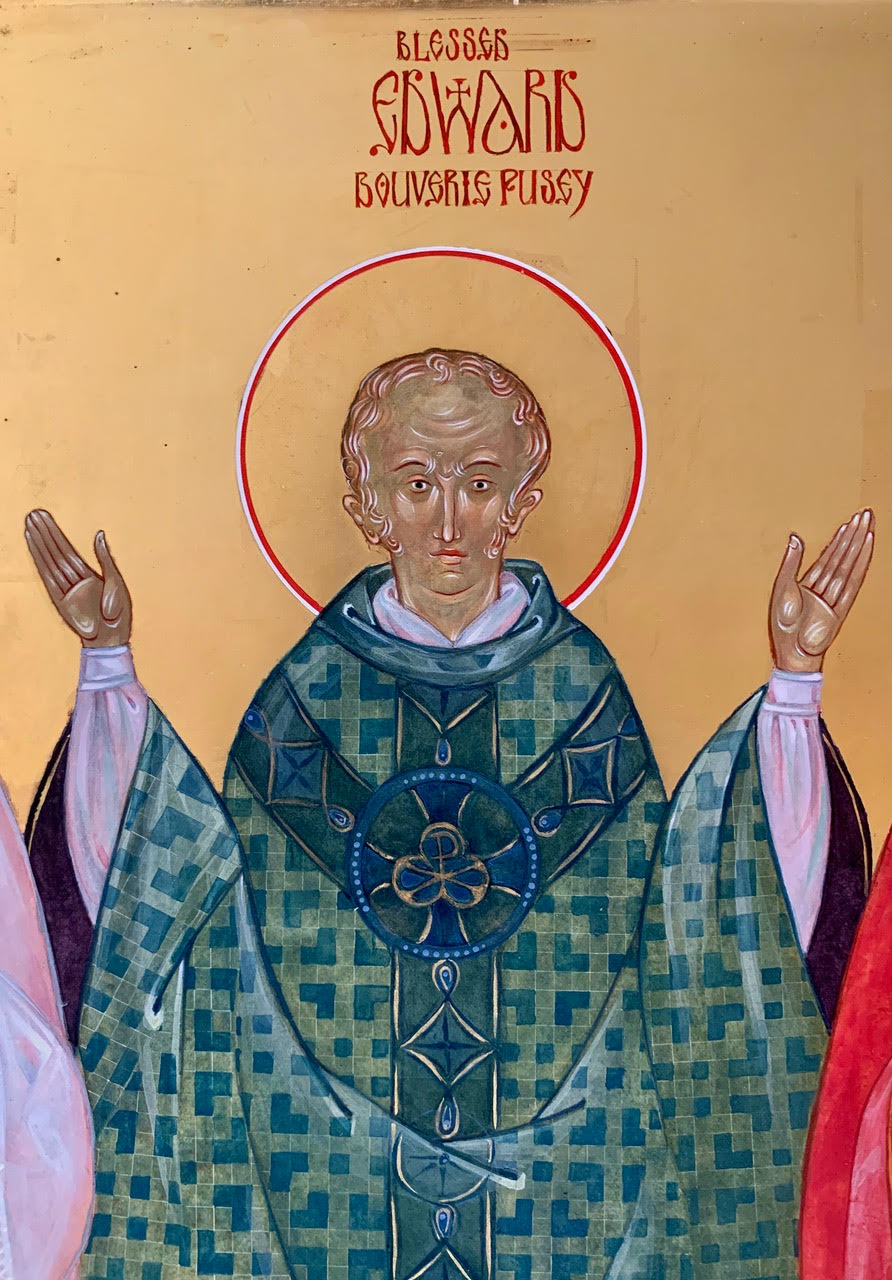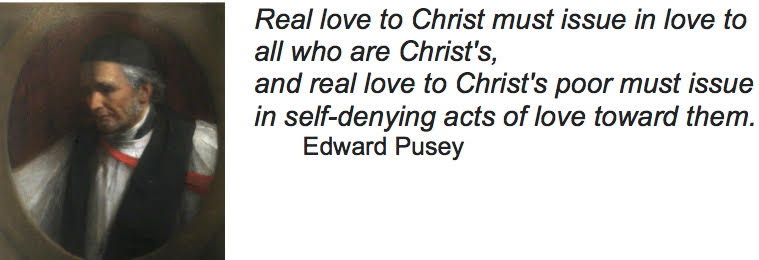With integrity and courage:Edward Bouverie Pusey
 Friday, September 18, 2020 at 11:27AM
Friday, September 18, 2020 at 11:27AM  that we may with integrity and courage accomplish what you give us to do, and endure what you give us to bear
that we may with integrity and courage accomplish what you give us to do, and endure what you give us to bear
Today is the Feast of Edward Bouverie Pusey. There is much that could be said about how he and his companions changed Anglicanism and the Episcopal Church in particular. Some of that is picked up in today’s reflection by Bishop Peter in Southeast Florida. (a PDF of the Reflection).
My thoughts go to his contribution to the transformation of society.
Out of shadows and images into the truth
The tradition he helped launch carries within it a vision of heaven and a transformed society. This story illustrates that.
They were instrumental in stirring up the Church's concern for the welfare, both spiritual and material, of the working classes. The building of factories had flooded many areas with workers who were without churches to minister to them. The Tractarians built churches in these areas, and in slum areas, and staffed them with dedicated priests. The influence of their work was widespread. For example: One disciple of Pusey was R M Benson, the founder of the Society of St John the Evangelist. One of Benson's disciples was Fr C N Field, who came to America and became deeply interested in the housing conditions of the poor in Boston. One of his disciples was Mary Kingsbury Simkhovitch. She says that it was Fr Field and the other priests of the SSJE who first taught her to visit the poor. Mrs Simkhovitch is accounted one of the founders of social work. She founded Greenwich House in New York City. One of her disciples was Frances Perkins, Secretary of Labor in the New Deal. She and Mrs Simkhovitch went to Harold Ickes and persuaded him to put public housing on the agenda of the New Deal. Thus the American public housing program of the 1930's and after was indirectly a result of the Tractarian movement. (On Edward Bouverie Pusey at Satucket)


 Father Ken Leech was part of that tradition. He saw a social vision that developed out of the Catholic revival as corporate, materialistic, transformative, rebellious and of the Kingdom. (“What kind of social vision emerges from the Anglo-Catholic tradition?”)
Father Ken Leech was part of that tradition. He saw a social vision that developed out of the Catholic revival as corporate, materialistic, transformative, rebellious and of the Kingdom. (“What kind of social vision emerges from the Anglo-Catholic tradition?”)
The history of the slum priests, the sisters who served among the poor and ill, and Anglo-Catholic socialism were all developments rising out of Pusey’s holiness.
The weakness and sinfulness of human nature
For Pusey this was offset by the need for humility. I’m sure it is a product of my own disordered mind that in thinking about Edward Pusey I turned to John Lewis.
I’ve been reading Jon Meacham’s, His Truth is Marching on: John Lewis and the Power of Hope. He notes Lewis’ humility and his passion for justice. Meacham sees Lewis as part of a tradition that is realistic about human nature and still joyfully idealistic. For Lewis it had roots in Christian faith and American idealism. The struggle for justice would never be completed in this life. Meacham wrote -
Our constitution was founded on a dark yet realistic view of human nature: that we are fallen, frail, and fallible. The aim of the new republic was not perfection, an impossibility on this side of Paradise, but, as Gouverneur Morris put it in the preamble to the Constitution, a Union that would prove “more perfect.” Experience teaches us that injustice is endemic to political life. “The tragedy of man,” the twentieth-century Protestant theologian Reinhold Niebuhr observed, “is that he can conceive self-perfection but cannot achieve it.” And the tragedy of America is that we can imagine justice but cannot fully realize it.
Meacham sees in Lewis a saint who didn’t allow his realism to turn him toward either cynicism or fatalism. “He understood sin, but chose to see the depravity of the world as something to be fought, nor accepted.”
In all time of our testing
My seeing a connection between Blessed Edward and Blessed John is strengthened by the propers provided by Holy Church for this feast day. In those Scriptures I see the relationship between the 19th century Anglian pastor and the 20 and 21st century Baptist foot-soldier for justice. Now together in the arms of Mercy, “into the glorious company of the saints in light.”
From the psalm - Happy are those who act with justice (Ps 106:3)
From Ezekiel - A new heart I will give you, and a new spirit I will put within you; and I will remove from your body the heart of stone and give you a heart of flesh.
From 1 Peter - When he was abused, he did not return abuse; when he suffered, he did not threaten; but he entrusted himself to the one who judges justly.
From Luke - “Whoever has two coats must share with anyone who has none; and whoever has food must do likewise.”
Ex umbris et imaginibus in veritatem
rag+
Edward Bouverie Pusey: Post Reformation Saint? By William Davage
Note 1: Ex umbris et imaginibus in veritatem (Out of shadows and images into the truth) is on John Newman’s gravestone
Note 2: The icon is lifted from an icon "The Oxford Fathers." In the icon Newman is on his left and Keble on his right. It's part of a collection The Anglo Catholics